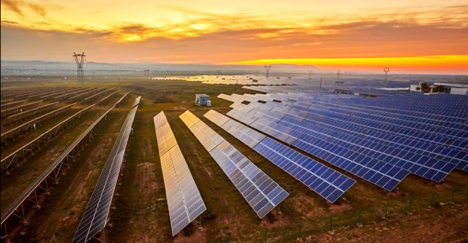There is no doubt that Africa faces a massive energy challenge. At the same time, the continent is richly endowed with renewable energy sources. According to international energy agency, around 580 million people in sub-Saharan Africa lacked access to electricity in 2019, three-quarters of the global total, while renewable energy is expected to contribute 22% of Africa’s total energy consumption by 2030.
There is a strong and urgent need to accelerate the growth of renewable energy across the region to ensure sufficient, affordable, reliable energy supply for individuals, businesses, and communities. Huawei is at the forefront of addressing those issues, as it demonstrated at a virtual digital power event today.
“There is still a massive gap to be bridged. However, the traditional energy infrastructure operation mode cannot meet the new challenges brought by the latest development in the digital world. Digital and intelligent technologies can be of great help to ensure we provide sufficient electricity to every African household and business,” said Huang Su, Director of Huawei Southern Africa Digital Power Business.
The cost of PV power generation has fallen sharply over the past decade. In most countries, traditional energy grids cost a lot more than PV electricity. This offers Africa an opportunity to harness its abundant potential of increasingly cost-competitive renewable energy to meet the growing demand for electricity and pursue a climate-friendly, needs-oriented power strategy.
As Huang points out, renewable energy is much cheaper than fossil-fuel-based options, with a kilowatt-hour of solar power costing less than a Rand in South Africa. It’s clear then, that solar power should — and likely will — play a large role in the world’s future power mix.
In order to achieve this, Huawei is committed to introducing digital power solutions driven by digital technologies.
“The essence of digital power is integrating cloud, AI, and other digital technologies with power generation, storage and consumption. We are ready and willing to provide our full support for building a green Africa and bridging the energy gap,” Huang says.
Huawei’s smart PV solution has been deployed in more than 60 countries and regions and has generated more than 300 billion kWH of green electricity, powering millions of residents and hundreds of industries globally. Huang said, Huawei will continue to innovate and enable renewable energy to empower each individual, home, and organisation.
“Huawei is already a household name in the ICT world,” Huang says. “All ICT requires power supply and Huawei has always provided that to one degree or another. Our efforts in the solar PV space are simply an extension of that. As we are good at Bits, so we basically try to add Bit streams on the top of Watt streams, and use bits to manage the Watt,” Huang says.
“Over time, Huawei will deploy more and more scalable power stations. These power stations can be managed and maintained online, further reducing their carbon footprint,” he adds. “We are uniquely positioned to bring electricity, power supply, and data management together. The journey from bits to watts is accelerating and we plan on leading it.”










